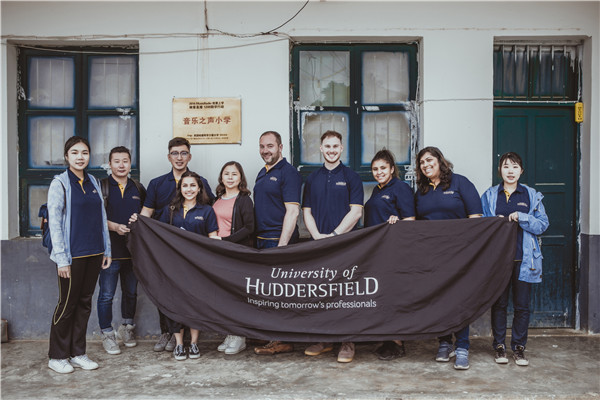UK university program is a class act for pupils


Students from British college teach and make friends in a primary school in Guizhou province.
It wasn't the presents the visitors brought with them, nor the time off classroom lessons that made the biggest impression among pupils at a rural primary school in southwestern Guizhou province. It was something much more valuable and intangible-meeting people from a faraway land and making new friends.
Li Chuanlei was thrilled when volunteers from a British university visited his school, Anqing Primary School, in Baide town, the Qianxinan Buyi and Miao autonomous prefecture, in late May.
They brought presents, including textbooks, stationery, sports goods and souvenirs but the key memory from the special day for Li was learning to play basketball and sing English songs with these "big brothers and sisters" who came all the way from the United Kingdom.
"It was fun and really different from my usual school days," says the 9-year-old boy.
The feeling that this day was a special day was reciprocated.
"For the children, it was a joy to see people from another country, but for me, it was to see kids who mean the world to me," says Neha Jasmine Rodrigues, one of the volunteer students from the University of Huddersfield who visited the primary school in May.
"These little kids had a twinkle in their eyes and their faces were glowing with smiles," she says. "A little time with them just made life seem complete, and the little knowledge and love that I could share made me feel accomplished."
Rodrigues is currently pursuing a master's degree in education at the University of Huddersfield, whose China office was behind this philanthropic program in Guizhou.
It was the seventh visit that the university has organized over the past three years, according to Allen Qi, chief brand officer of the China office with the British university that was founded in 1841. The primary school where these students volunteer to teach is the biggest of its kind in Baide town and has more than 500 pupils. Most of them come from nearby villages. Many are living with their grandparents, because their parents have left to work in the cities.




































